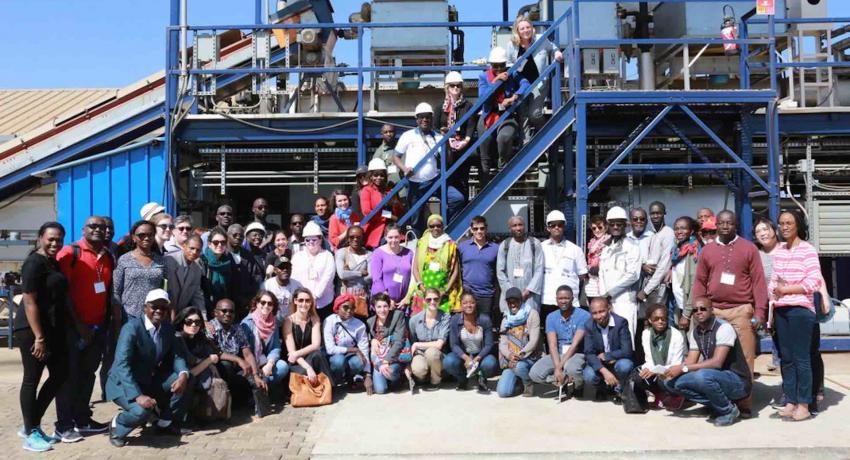The partners of the Bill and Melinda Gates Foundation working for advocacy for autonomous sanitation in Dakar.
Access to adequate sanitation is a question of dignity. The latter remains a priority for the preservation of public health and the protection of natural environments, thus contributing to economic and social development. Aware of these issues, the National Office for Sanitation of Senegal (ONAS), launched in 2011, with the financial support of the Bill and Melinda Gates Foundation, the Program of Structuring the Market of Sludge Drain (PSMBV) in peri-urban areas of Dakar, to improve sanitation conditions for the population. This program designed to take charge of the entire sludge value chain has highlighted the vision of the President of the Republic His Excellency Mr. Macky Sall, materialized in the Emerging Senegal Plan (PSE) and aimed at driving the Senegal on the road to emergence by 2035.
With this in mind, from January 15 to 19, 2018, the meeting of Bill and Melinda Gates Foundation partners working in advocacy for autonomous sanitation was held in Dakar. This important meeting, which brought together more than sixty participants from diverse backgrounds, focused on cultivating a network of Gates Foundation partners in Africa for close collaboration at the municipal, national, regional and international levels. It also aimed to understand how policies, strategies and regulations can improve business models related to fecal sludge management. This event was chaired by the ONAS Director General, Mr. Lansana Gagny Sakho and Mr. Doulaye Koné, Deputy Director of the Water, Hygiene and Sanitation Unit of the Bill and Melinda Gates Foundation.
Mr. Sakho took the opportunity to highlight the importance of prioritizing autonomous sanitation. "If half of the funds allocated to collective sanitation had been directed towards autonomous sanitation, Senegal, like many African countries, would have largely surpassed the Sustainable Development Goals (MDGs) for sanitation. today, "he says.
During this meeting, Mr. Sakho highlighted the achievements of the program, particularly with regard to the rehabilitation and delegation of the management of the fecal sludge treatment plants in Dakar to the private sector. He also made a point of announcing the scaling up of the fecal sludge project, highlighting the indispensable role of the private sector in this system.
The vision of ONAS is clear: the management of all sanitation works will be entirely delegated to professionals. This option is essential in order to ensure the durability of the structures and to offer users a quality service. This vision of ONAS is in line with Axis 1 of the Emerging Senegal Plan, which emphasizes the importance of public-private partnership. Moreover, as stated by the President of the Republic during the Forum on the financing of public-private partnerships projects held in 2014 "The State alone can not achieve the emergence, it creates the conditions by coherent public policies and a business environment conducive to private investment. This is why we have associated the private sector in the design of the Emerging Senegal Plan (ESP). It (the private sector) remains our main partner in the decisive phase of its implementation. The essential role of the State in terms of regulation but also of creating a favorable environment for greater involvement of partners in the sanitation sector.
The participants of the meeting were able to carry out field visits at the Niayes fecal sludge treatment plant, the prototype of the omniprocessor which makes it possible to produce by-products of fecal sludge such as water. drinking water and fertilizers, adapted toilets in flood-prone areas marketed by Oxfam and, finally, emptying missions in various households in Pikine under the supervision of the Association des vidangeurs du Senegal. The meeting highlighted opportunities for synergy among stakeholders around sanitation and opportunities for sharing and disseminating good practices in the field of sanitation at national, regional, continental and international levels. The discussions also highlighted the impact that well-formulated sanitation policies can have in achieving the Sustainable Development Goals.


